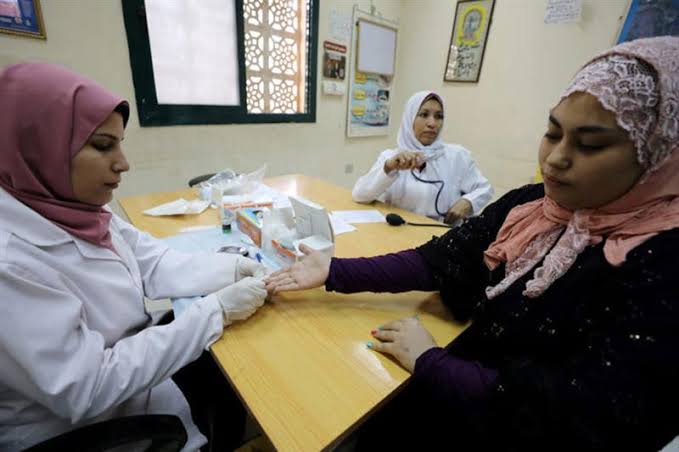Egypt had launched several health initiatives in the three years preceding the Covid-19 pandemic to screen and overcome hepatitis C and non-communicable diseases.
Among them is the 100 Million Health initiative launched by President Abdel Fattah El Sisi in 2018 until 2019.
The campaign included mass screenings for all citizens over the age of 18 for the early detection of hepatitis C infections, as well as nationwide treatment. The initiative has screened over 60 million people out of Egypt’s 102-million population.
Early detection was not only restricted to hepatitis C, but included diabetes, hypertension, and obesity, directing those who need to receive treatment to various units and hospitals in the republic to reduce deaths caused by non-communicable diseases which represent about 70 per cent of deaths in Egypt.
President Sisi underscored in his speech in the World Government Summit on Monday that Egypt succeed in becoming free of hepatitis C in 2020.
Dr Alaa Ghannam, director of the Right to Health programme at the Egyptian Initiative for Personal Right, told The Egyptian Gazette: “Egypt’s success in combating hepatitis C was due to a complete shift in policy. The success of this campaign goes down to Egypt’s ability to deal with the problem on multiple fronts. It instituted infection control measures, educated the public, and provided a national no-fee screening and treatment network.”
“Before the launch of this campaign to eradicate hepatitis C, which is a significant factor in the development of liver cancer and other serious ailments, the virus was to blame for large proportion of fatalities in Egypt,” he added.
Ghannam noted that Lessons learned from Egypt’s successful programme were included in the WHO’s Global Health Sector Strategy on Viral Hepatitis 2016-21 as part of the ongoing campaign to achieve the 2030 elimination target.
Thanks to effective health initiatives, Egypt has successfully handled the Covid-19 crisis Health and Population Minister Khaled Abdel-Ghaffar affirmed on Tuesday.
During a session on future of health and quality of life, which was held on the sidelines the World Government Summit (WGS), Abdel Ghaffar said that no unified model was adopted during the Covid-19 pandemic.
The number of elderly people (60 years and over) in Egypt represents only 8 per cent of the total population, which reached 105 million, said Abdel-Ghaffar, adding that this gave Egypt better opportunity to deal with this age group, which is more vulnerable to the virus.
Prior to the outbreak of the pandemic by three or four years, Egypt adopted numerous initiatives, the minister said, adding that more than 60 million people were subjected to medical checkups.
Checkups contributed data enabling the protection of those people who are prone to contracting the virus, the minister added.
Asked about Egypt’s readiness to confront future crises, Abdel-Ghaffar said that Egypt has faced daunting challenges over the past three years.
Despite the challenges, Egypt did not issue decision to close schools or universities, Abdel Ghaffar said.
Egypt is working on improving primary healthcare programmes for thousands of health units in the governorates, Abdel-Ghaffar added.
The Egyptian government is working tirelessly, with the support of President Sisi, to improving living standards, the minister said.






Discussion about this post